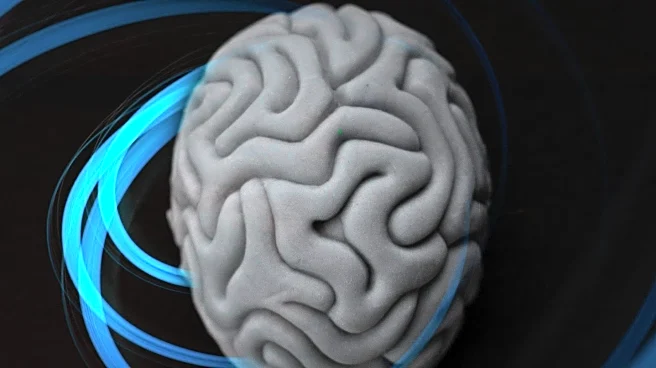What's Happening?
The phenomenon of 'doomscrolling,' defined by the Cambridge Dictionary as the compulsive habit of consuming negative news on digital devices, is increasingly recognized for its impact on mental health. Neuroscientist TJ Power explains that doomscrolling depletes dopamine levels, leading to a lack of motivation and a compulsive need to continue scrolling. This behavior is linked to the brain's reward system, where dopamine is released in response to stimuli, creating an addictive cycle. The article highlights the negative effects of excessive screen time, including cognitive decline and reduced gray matter in the brain. Power suggests strategies to combat doomscrolling, such as establishing digital boundaries and engaging in activities that promote dopamine production through accomplishment.
Why It's Important?
Doomscrolling poses significant risks to mental health, contributing to anxiety, depression, and cognitive decline. As digital consumption increases, understanding and addressing this behavior is crucial for public health. The insights provided by neuroscientists like TJ Power offer practical solutions to mitigate these effects, emphasizing the importance of intentional digital habits. This issue affects a broad demographic, particularly those heavily reliant on digital devices for information and social interaction. By implementing strategies to reduce screen time and promote healthier dopamine production, individuals can improve their mental well-being and productivity.
What's Next?
Efforts to address doomscrolling may lead to increased awareness and changes in digital consumption habits. Educational campaigns and tools designed to limit screen time could become more prevalent, encouraging users to adopt healthier practices. As research continues, further insights into the neurological impacts of digital addiction may inform public policy and mental health initiatives. Stakeholders, including tech companies and healthcare providers, may collaborate to develop solutions that balance digital engagement with mental health preservation.
Beyond the Headlines
The cultural implications of doomscrolling reflect broader societal challenges related to digital dependency and information overload. As individuals seek constant updates, the quality of information and its impact on mental health become critical concerns. This behavior underscores the need for ethical considerations in digital content creation and consumption, prompting discussions about the responsibility of media platforms in curating content that supports mental well-being.











